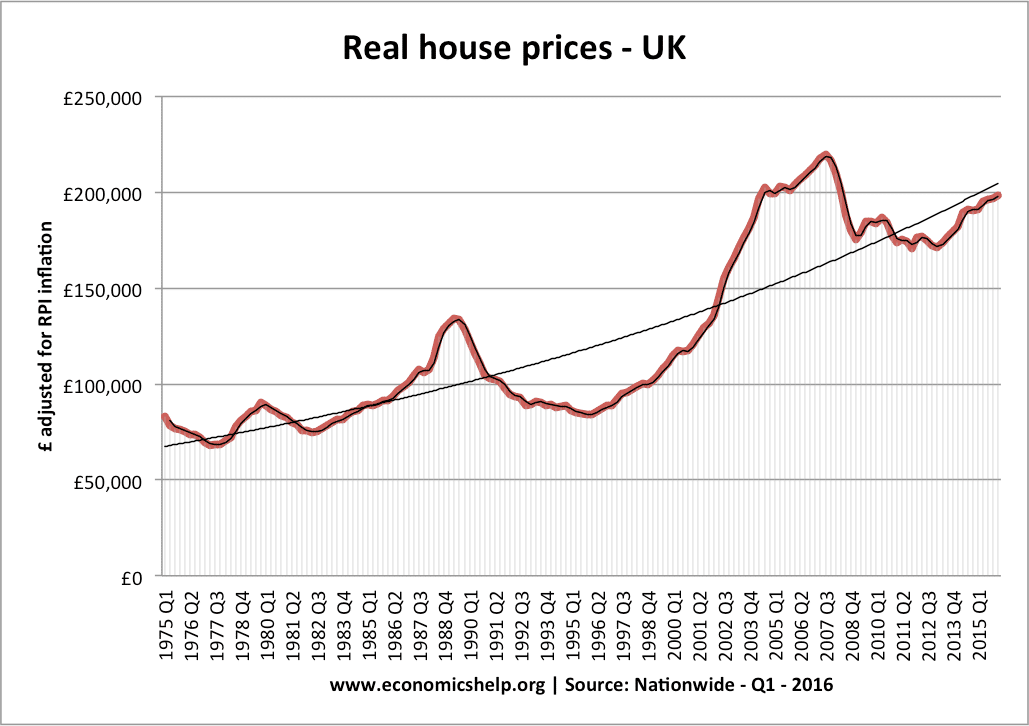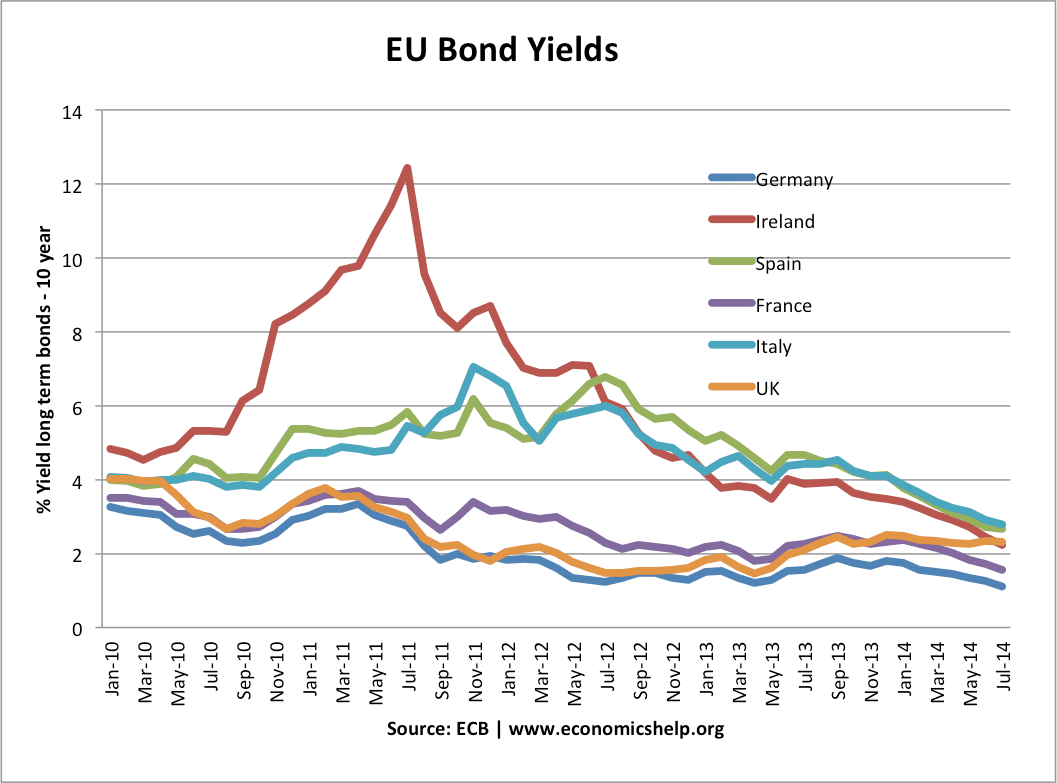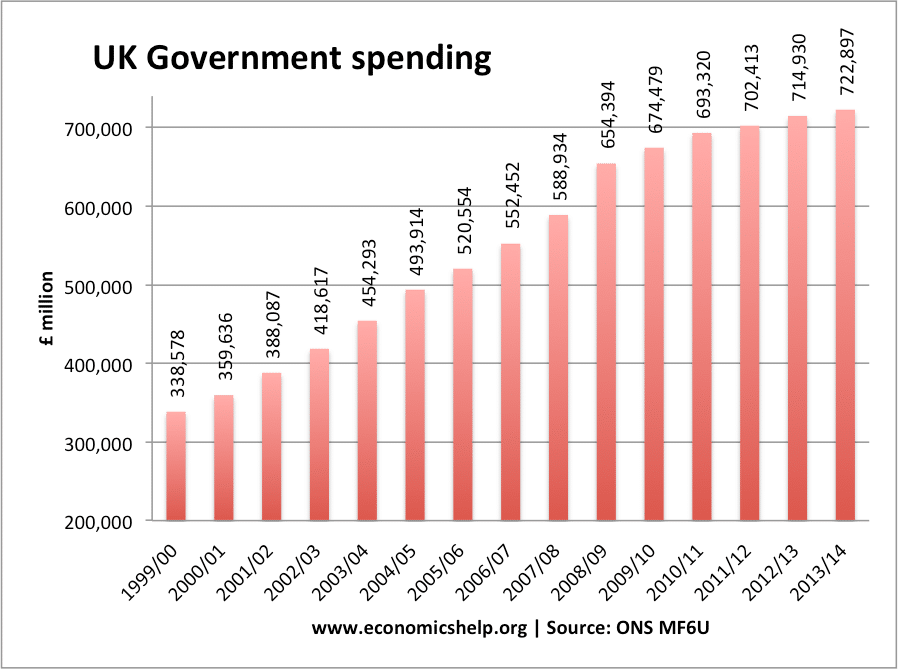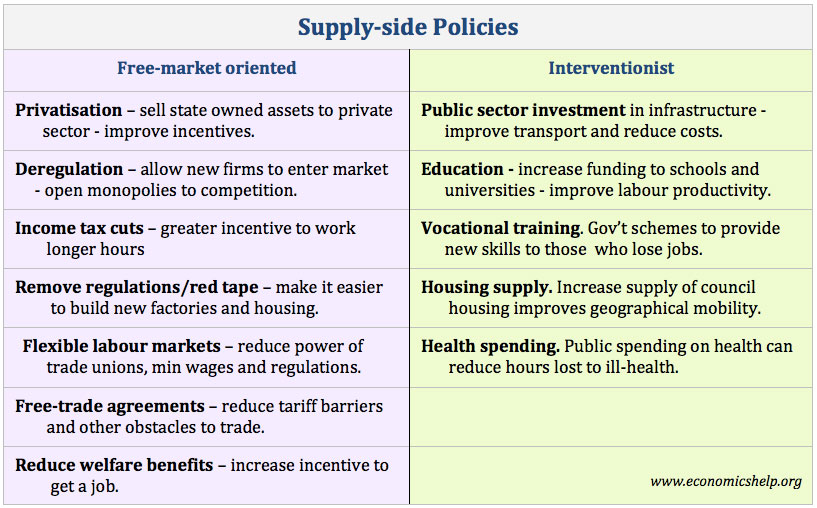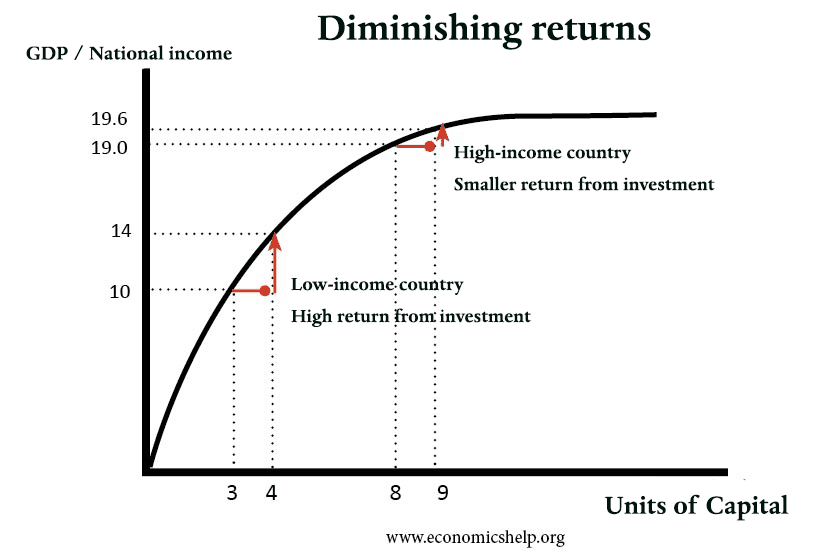House prices and interest rates
Interest rates have a strong influence on house prices, principally because changes in the interest rate affect the cost of mortgage payments. How do interest rates affect house prices? If interest rates rise it will have a significant effect on increasing the cost of mortgages. Higher mortgage payments will deter prospective home-buyers – it becomes …

